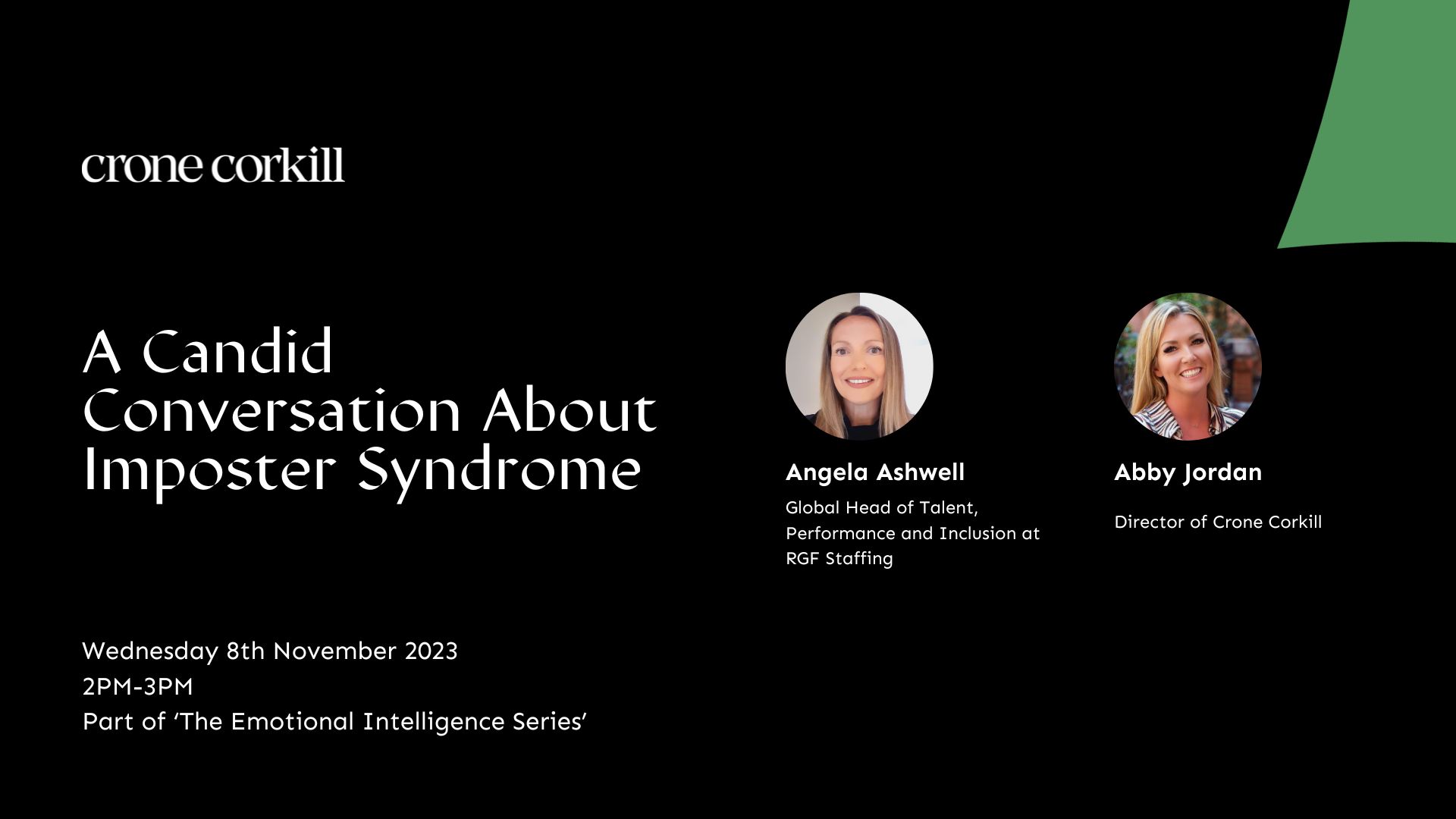Imposter Syndrome is more common than you might think, affecting 70% of people at some point in their lives*, with women experiencing it more frequently than men.
Author Clare Josa, writer of ‘Ditching Imposter Syndrome’, identifies the four ‘P’s associated with imposter syndrome: perfectionism, paralysis, people-pleasing, and procrastination. These feelings can have significant impacts on both our personal and professional lives, potentially leading to loss of relationships and burnout.
We had an eye-opening chat with Angela Ashwell, RGF Staffing’s Global Head of Talent, Performance and Inclusion, where we gathered valuable insights on how to confront imposter syndrome.
“The wonderful thing about imposter syndrome is that it’s a message telling you that you aren’t the finished article. Who is?” – Angela Ashwell
Prepare, prepare, prepare
One effective strategy for overcoming these nagging feelings is thorough preparation. Whether it means delving deeper into the subject matter, focusing on your specific goals, or seeking support from subject matter experts, preparation can make a significant difference. When you’re well-prepared, self-doubt tends to fade away. Be brave and show up, the rest you can work out as you go.
Confidence is knowing your worth
Confidence is key. Angela shared that true confidence comes from knowing your worth and understanding the value you bring to the table. Imposter syndrome acts as a nagging critic, suggesting you’re not good enough. Confidence, even if you need to ‘fake it till you make it,’ can silence those voices and stand tall. Show up how you want to be seen, throw yourself into that talk or interview you’d usually shy away from. You don’t need to be loud or extraverted, just be you, because your version of throwing yourself in is different to others, and so it should be.
How mentoring can help
Mentoring can be a valuable resource. Angela shared that through mentoring, she realised these thoughts aren’t unique to her and by giving time to others you can learn so much about yourself. It can remind you what you know, how good you are, and work you still have to do. Having a mentor partner can provide you both with powerful feedback. By looking outside of yourself seeing what you can do for others will galvanise yourself believe in what you have achieved.
Make note of your wins
Celebrating your achievements, no matter how small they may seem, is essential in building your self-belief. Keep a record of your wins, as it can serve as a tangible reminder of your accomplishments to look back on. Go back through your CV and bullet point career highlights for each job. Because let’s be honest, we often sit in the present or recent past when we think about our achievements, and don’t reflect on how far we have come.
We love having these frank and honest conversations, particularly as the conversation about wellbeing in work becomes even more talked about. It’s essential to acknowledge these challenges and support one another. We believe that fostering a culture of openness and support can be a game-changer in creating a happy and successful team. By coming together, sharing our experiences, and offering mentorship, we can create an environment where everyone feels heard and empowered.
Watch the Imposter Syndrome Webinar

Want more recruitment and HR insights?
Sign up for our newsletter
